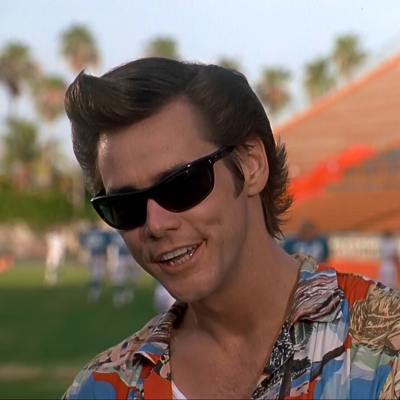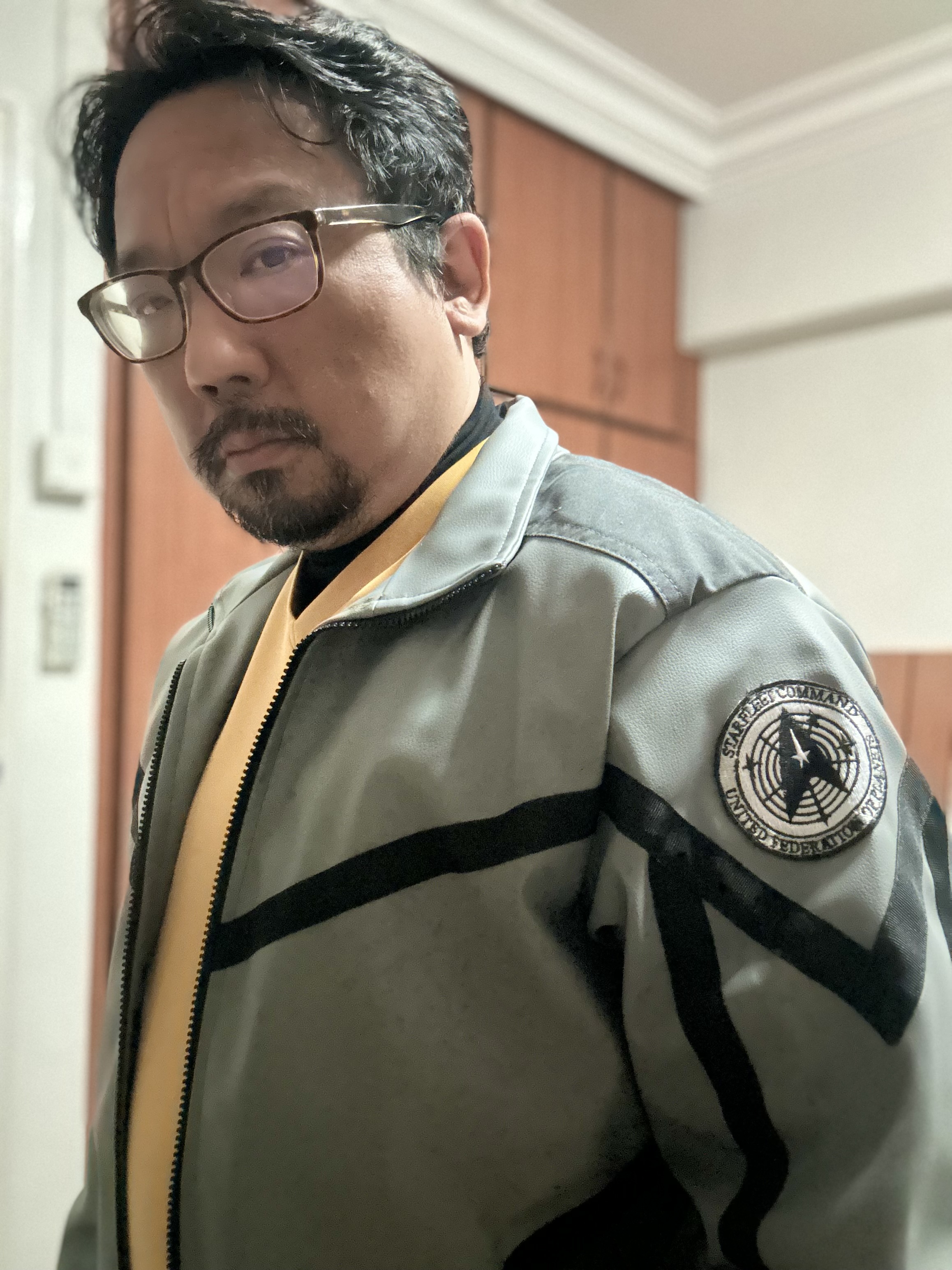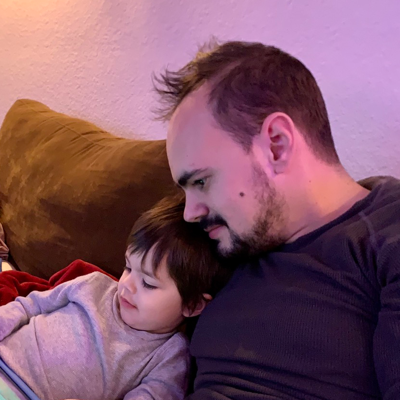Logline
Commander Una Chin-Riley faces court-martial along with possible imprisonment and dishonorable dismissal from Starfleet, and her defense is in the hands of a lawyer who’s also a childhood friend with whom she had a terrible falling out.
Written by Dana Horgan
Directed by Valerie Weiss
I was worried before whether or not the first episode would be similar to the rest of the season or was just showy by virtue of being an opener. Whoever picked this to be the second episode read my mind. I really liked how the other comments mentioned that Una’s story can be so easily tied to many people’s own struggle as living as an “other” with the ability to blend in.
It’s almost sad that in the future we may find yet more ways to divide ourselves that will make this episode feel as relevant now as Measure of a Man decades ago.
I largely quite like SNW, but this episode had some extremely questionable eugenics apologia laced into the narrative.
I think the broadest problem with nu-trek (though it’s strongly reined in in SNW) is the heavily maudlin over-scoring and the bathos-laden dialogue. When almost every exchange between two characters sounds “perfectly written” and is dripping in score, it’s hard to take seriously.
If SNW employed like, 20% more restraint in that regard, it would sing.
I was definitely missing those pregnant pauses that they had in Measure of a Man. I figure they had a lot of dialog to pack in there, but it did come off pretty “perfect”.
I’m currently watching both SNW and Voyager (season 5) in parallel. So far, I’m enjoying Voyager way more, but I cannot pinpoint why. Could it be the longer camera shots? The more stoic personalities? The nostalgia effect? I don’t know, but I will keep watching SNW and see how it turns out. I wasn’t too impressed with Picard, but the season 3 ending was pretty good event though the show didn’t feel like TNG to me.
Sorry about the grammar mistakes. I’m not a native English speaker.
We’re in a different era.
I for one am very glad we’re not in the melody-free scoring that was imposed by Berman in the 90s. I recall being at a con in the 90s where Rick Sternbach was presenting. There were several questions from fans asking why TNG and DS9 didn’t use the melodic motifs and themes in the way they had been in TOS. Sternbach laughed, noted that the norms of television scoring had changed but that someone ‘must have played really bad Vivaldi to Berman at some point in the past.’ He also talked about how happy they were to get the theme composed and recorded for DS9.
So, we have to expect each era to reflect the more general trends on use of music.
I find Nami Melumad’s episode scoring on SNW and Prodigy much more restrained than Jeff Russo’s on Discovery and Picard seasons one and two. In particular, I found some of his use of splatting horns overwhelmed some of Discovery’s more dramatic moments. Russo is however award-winning and an in-demand composer on top streaming shows beyond Star Trek.
“I regret that you had to witness that outburst.”
Best line in the show!
Yeah Spock makes this show much better
I really like this Spock, don’t get me wrong, but I’m finding his increasing “humanness” a bit distracting. I mean, making a joke in court? That was a bit far-fetched.
One of the problems that this show has to grapple with is that we already know Spock very well from Leonard Nimoy’s portrayal. I’d go so far as to say that - notwithstanding a few gaps - every major event of his life is known to the audience, and we are very familiar with how he’s “meant to be”.
What then is an actor to bring to such a part? Ethan Peck can’t just replicate Nimoy’s performance - for one thing, it would be boring. The writers take advantage of this series being a prequel to do the only thing they can: show how Spock became the Spock that we know from TOS. They use his appearance in the TOS pilot “The Cage”, where he was visibly more emotional and “human”, as a touchstone, and make his journey towards emotional control and “Vulcan-ness” part of his character arc for this show.
I went into it a little in another post, but I think Spock’s manner is more familiar and “one of the guys” because he’s allowed himself to become emotionally attached to the rest of the crew, and that bleeds into his personality, making him more liable to use humour and jokes to relieve tension. A few years later, when Kirk takes command and many of these officers have moved on, he decides that he will be more emotionally guarded, letting his guard down only with Uhura and Chapel - and only in brief, relaxed moments.
I took as needling the Vulcan Jag…which he couldn’t resist. The set-up was his uncontrolled outburst in the Enterprise mess.
Just what were they thinking putting that maniac on a Starfleet ship.
Complete loose cannon.
While it was played as a joke, the whole “was she hiding something” had me on first watch going “but everyone is hiding something, surely”
Spock was highlighting this with his trademark precision.
The joke in the court felt kinda cringe, though I otherwise really like Spock in SNW
Loved it. Star Trek has always been handwavy with legal rules in favour of a compelling debate and this was no exception.
As a Canadian, I instantly started thinking about the metaphor in terms of laws the Canadian government had against indigenous people practicing or teaching their cultural practices.
On the other hand, as a gay man, I was thinking about when homosexuality was considered a criminal practice and how sometimes gay men will stay in the closet to avoid discrimination.
One of the things that’s most interesting to me is how many minorities groups Una’s experience maps to in some rhyming way.
I thought trans people were a good fit for the metaphor, given the body alterations that can be involved.
I think how the genetic augmentation ban was portrayed in Una’s case in particular - a military court martial - was similar to “Don’t Ask Don’t Tell”, so LGBTQ+ groups do seem to fit better than, say, race or sex. Even with DADT no longer in force, there’s topical parallels, like you suggest, with trans people. But there was an emphasis on the Illyrians’ genetic augmentation being “their custom”, so you can apply religious or cultural prejudice equally as the allegory.
I’ve heard a number of people interpret it about themselves, which is really good, the allegory was understandable while still being a cohesive story.
I was going to say “I don’t think there was a debate here really, unlike say in Measure of a Man”. But that’s not actually true, I just find the Federation argument so specious and hypocritical compared to many other Federation points that I honestly don’t see their POV.
I’m… not gonna lie, I get the Federation’s argument. Genetic engineering is a dangerous thing to start doing to sapient species, and it can lead to a resurgence of eugenics and other stuff like that.
The only real issue with their stance is that they discriminate against people who’ve been genetically augmented, instead of simply trying to prevent stuff from happening in the first place.
Genetic engineering is a dangerous thing to start doing to sapient species, and it can lead to a resurgence of eugenics and other stuff like that.
Sure, but so is freedom of speech, and we’ve been resurging Nazis just fine sans genetic engineering. I guess I’d want to know why people think it’s so cut and dried when we don’t think that about plenty of other issues like speech and misinformation and disinformation, various anti-patterns of information flow on the Internet and such. I think you easily end up in a place where you divide medicine vs engineering.
The other thing I think is dangerous about the genetic engineering is inherently eugenics is that it seems to require beliefs that there are actually “better” genetic IDK settings? And that engineering will pull them out. But this would also imply that there are naturally occurring “better” people, and that is controversial to say the least.
I think it’s patently obvious that there are people influenced by genetics but needing specific nurture to make the most out of it to be more skilled in one area or another. I’m never getting into the NBA just because I’m well under 6’ tall, and I wasn’t hurt for nurture.
The problem with eugenics as I see it is the idea that there is a “better” in all aspects platonic ideal we could engineer or breed our way towards, and there’s not really any evidence of those people existing, and I’ve seen plenty of speculations that moving one thing too far out of norm has other affects. I don’t think we know it’s true, but it’s certainly plausible that there are people who have various aspects that when increased tend to cause either through genetics or more likely culture and the like other aspects to be neglected.
For instance, if you’re very good at school / book learning, you might find that sort of young experiences more enjoyable than say sports, where you’d have to work at it. I sort of doubt without an authoritarian system already in place well before genetic engineering that you’d be able to interest even enhanced people in everything, and if they’re just better at some things I don’t see why people who already don’t buy into the eugenics philosophy would not treat this just like a Michael Jordan sort of person.
I really like the look fo the dress uniforms. Surprised that they never got Pike to the stand, especially after Una confessing that she told Pike 4 months ago.
Now that the cast has been reset, I’m ready for them to explore some strange new worlds.
Honestly, the sets and costumes for SNW are setting the bar for TV shows in general, let alone star trek. Just as much as the new plots, I’ve been looking forward each week just to the visuals.
Yes, this. It’s setting a new bar. Fantastic design, well executed.
SNW seems to have hit a gestalt of not just production and costume design but also lighting and cinematography. Like TOS and early colour television, it’s making the most of the new UHD technology. Everything has come together and is reinforcing the impact.
Discovery was reaching for this in the 32nd century design, and even with the Enterprise bridge as originally built for Discovery season two. The principal ship sets from the first season were an ongoing constraint though. Costume designer a gersha Phillips found her initial attempts to put the Discovery crew into 32nd century uniforms did not stand out against the ship’s dark bridge.
It will be interesting to see if they can achieve something similar in the 32nd century with the new Starfleet Academy show.
Surprised that they never got Pike to the stand, especially after Una confessing that she told Pike 4 months ago.
I think Pasalk was pretty out of line with his approach - his questioning essentially amounted to a criminal investigation of someone else. My knowledge of law isn’t very strong, but that seems inappropriate.
You generally can’t make people incriminate themselves, and upping a charge from fraud to conspiracy would be exactly that. That is, in a court run by laws instead of TV logic she could’ve remained silent.
…unless there’s some special sauce in US law that says “once you take the stand” or something, dunno I don’t speak common law and Trek can’t help itself but assume US law but it definitely doesn’t look kosher.
In the US, wouldn’t she be able to plead the 5th?
TNG’s “The Drumhead” shows us that Federation law (or at least Starfleet Military Code of Justice) includes a similar right. Crewman Simon Tarses invokes the Seventh Guarantee when asked about his Romulan heritage.
It’s definitely possible that the Seventh Guarantee wasn’t part of the Code of Justice until after this incident, too. Maybe there’s a push for it after the United Federation of Planets v. Una Chin-Riley ruling because of the conduct of Pasalk.
It’s possible. In all cases, Batel clearly states to Pike in the mess that the interrogated person has to answer.
This was a fantastic episode. One thing I liked in particular was that they had an actual lawyer defend Una, and not just have Pike do it.
Oh yeah, an actual lawyer and one who was not assigned by Starfleet. Una was also spot on with her complaint that her original counsel was paid by those prosecuting her. 👏
They kept the tradition alive by having a starship captain handle the prosecution, though.
But in contrast, this lawyer (Neera) won by mainly by being a good lawyer (albeit in a tv legal drama kind of way). Setting things on fire with the first witness to create a bunch of fog and doubt about the premise of the case, realising that other important regulations impinge on the case and setting up testimony to substantiate the effect of those regulations.
My memory of most other officer-lawyers is that their methods tend to focus more on the moral “issyew” (Picard’s pronunciation of “issue” in Measure of a Man).
“issyew”
/ˈɪsjuː/ is very common in RP. You hear it all the time in parliament.
Oh yea I know. In the context of TNG though, where everyone else has US accents, Picard’s Britishness goes up to eleven on that word.
I really want Pikes haircut

This episode was striking in that it showed the crew of the Enterprise being the best of the best Starfleet officers. Pike going to literally the brink of death to find his #1 the best lawyer in the galaxy, Uhura telling La’an off for making an illegal request, La’an trying to poke holes into weak chinks in security, and Una stepping up to lay it all out on the table so her friends won’t have to keep her secret and be in danger for doing so. Amazing. No wonder they’re posted on the flagship.
What a beautiful episode. The message was great and it wasn’t ambiguous enough for people to really misinterpret or miss it while still remaining an indirect allegory for current times. The allegory was clearly about either homosexuality or undocumented immigrants and I appreciate that people from either group can likely relate to this episode. As a gay guy I have to say I definitely did.
Also, the scene with Spock’s “outburst” was hilarious and I loved seeing the (on the surface) emotionless Spock once again.
Overall I loved the episode and I’m very glad to see one I love after personally disliking the previous one.
The allegory was trans people. Hence all the talk of needing to ‘pass’ to be accepted and the wonderful lil touch of Unas child cast being the colours of the Trans flag
There were also parts of it that could easily be interpreted as Jim Crow era politics. Passing was a thing for Blacks as well. Splitting into two different cities reminded me of both redlining and “separate but equal.” Of course, history repeats itself, and this allegory could also be applied to Jews, Native Americans, and any other persecuted minority, including gay and trans people. Una’s whole situation could pretty easily be mapped onto a “don’t ask, don’t tell” situation as well.
It is not unlikely that this is the allegory they had in mind primarily, but so much of the bigotry and hatred depicted applied to gays, blacks, jews, women and probably more groups, too.
We’re rhyming history, every generation we’re trying to overcome prejudice, oppression and hatred against a new minority, only for some to conjure up a new distinguishing feature to define a minroty to be ostracized. It feels like treading water sometimes, can’t we just cut through the bullshit in one go, but no, we have to go through all the steps, while some new group (or a subgroup of a previous group) has to endure all the pain this brings. Sometimes it feels like we’re not really getting better. But maybe we are. But it’s still too slow, it still repeats itself, and nowadays we might experience multiple such cycles in our lifetime, when at some point it took generations to get that kind of progress?
Ah, I’d missed that detail. I was on the fence about whether or not it was a trans allegory because it didn’t initially feel like there were as many similarities in her story to being trans as there was to homosexuality and being an undocumented immigrant but upon further consideration I have to agree. Though it does seem to me like it is also about those other groups I mentioned. I suppose it’s a bit of a catch-all (which worked great).
The way Illyrians were segregated into Illyrian and non-Illyrian cities except for people who could pass echoes the Jim Crow era of US history, with black people being segregated and some of them trying to pass for white.
The refusal of service to those who were found to be Illyrian is like antisemitic attitudes in pre-war Nazi Germany, or the refusal of service to homosexuals. Most of what happened can be compared to any persecuted minority, racial or sexual.
That’s the beauty of a good metaphor. And the ugly universality of bigotry.
Measure of a woman
That was a beauty! I love this crew! Seeing them all back Una up made me quite emotional. I’m a soppy git.
Is it me or is SNW the best looking trek ever? Everything just looks so cool. I bloody love it.
For an episode whose argument hinged on genetic engineering being a cultural practice for the Ilyrians it is strange they never actually had anybody testify as to what significance it has in Ilyrian culture. Or how it is done and why.
If the genetic engineering is done to adapt to their inhospitable atmosphere why are they doing it to every child? They could just edit the germline once and be done with it.
Altogether it felt like the writers just got very attached to the idea of genetically modified individuals as a metaphor for real world marginalized groups that they lost track both of the in-universe practicalities of the metaphor and the real world implications for the metaphor. This was just outright sympathetic to eugenicists, an ideology that has led to the deaths of millions of marginalized people.
@varda @ValueSubtracted Maybe I missed something but I thought the Ilyrians were all about augmentation, both genetic and technological. I think there’s a huge difference between taking something, making it better and the pursuit of a perfect race. I too would like to know more.
There’s no difference actually. You seem uneducated about eugenics
@bulbasaur “the study of how to arrange reproduction within a human population to increase the occurrence of heritable characteristics regarded as desirable.” Very different from augmenting oneself with current tech, like vaccination.
Vaccination does not modify your genes, so it’s completely irrelevant to this conversation
While I agree I am curious as to the why/how from an intellectual place, I don’t think it bears relevance to the decision based on federation bias. Reminds me of a Canadian “barbaric practices” hotline that was created years ago in a <opinion> misguided </opinion> attempt to assimilate immigrants to Canadian culture. Could there be cultural practices inconsistent with federation values? Maybe. Is this one of them? Not in my opinion
Eugenics is actually disgusting and horrific and totally inconsistent with the values of anyone who isn’t a nazi
deleted by creator
I’ve seen it said a couple of places that this should have been the season premiere and I think I agree, but I haven’t seen much mention of the episode’s impact. We know that on the larger timeline, Federation policy on gene manipulation remains unmoved, but there’s more going on here.
It becomes evident in the arbiter’s closing statement on making an effort to judge augments on their individual circumstances rather than applying the “broad brush” approach, and that is significant. This episode retroactively sets a precedent for Bashir and Dal’s cases later.
… also the “Don’t Ask Don’t Tell” allegory is subtle as Tsar Bomba and I am fucking here for it.
Trek and courtroom dramas name a more iconic duo
I really enjoyed it even knowing the laws wouldn’t change in the end since Bashir was still persecuted in ds9 but it’s always fun to get a court room trek episode
















